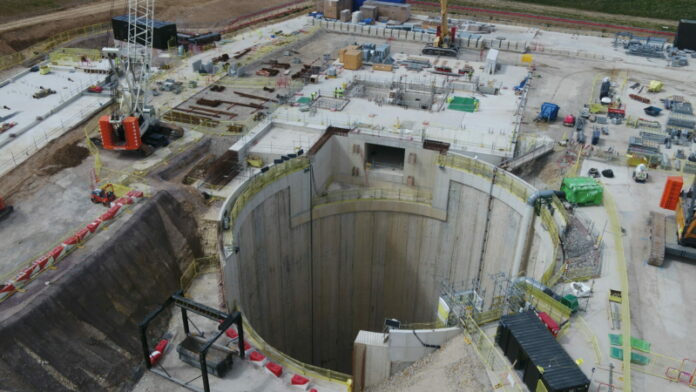
ANGLO American said it could write down the carrying value of its Woodsmith project this year, its soil nutrients in northern England on which it also announced it would spend $800m next year.
It also alerted investors to a capital build in the organisation of between $2bn to $2.5bn which may relate to infrastructural logjams in South Africa, specifically at Anglo American Platinum (Amplats), its 80% owned listed subsidiary.
Commenting in an investor update today, Anglo CFO Stephen Pearce said Woodsmith had taken longer to develop than first anticipated when it bought control in 2019 at a cost of £403m as it sought to improve “the project’s configuration”.
“This will extend the development schedule and the capital budget, compared to what was anticipated prior to our ownership, and so potentially impact our carrying value of Woodsmith for accounting purposes at the year-end,” he said.
An update regarding the full capital cost of developing Woodsmith through to production is expected to be published early next year following an optimisation study. Woodsmith is to produce polyhalite (also known as Poly4), a fertiliser derived from potash that helps improve crop yields.
Pearce said the company was “even more positive” about Woodsmith’s prospects. Analysts have speculated the project could cost about $5.5bn to develop. The $800m capital set aside for 2023 was for “shaft sinking and other critical infrastructure”.
The group has targeted production growth of 10% over the next two years primarily driven by an increase in production at Quellaveco, a copper project in Peru that Anglo developed with Mitsubishi for about $5.3bn.
Copper is expected to comprise 33% of Anglo’s Ebitda in 2023 – the largest contributor by commodity – compared to 2022.
Capital build
Speaking at the investor update today, Pearce said $1bn of the capital build related to good capital management practices at Quellaveco and De Beers (the latter to take advantage of demand and good diamond prices in early 2023).
However, $600m related to inventory trapped at Amplats and Kumba Iron Ore, the firm’s 70% owned listed subsidiary. “These should reverse in 2023,” said Pearce.
Amplats said today in a separate announcement it had 350,000 PGM oz in work-in-progress inventory which would “be largely refined in 2023. About 100,000 PGM oz would be refined in 2024. All told the build up unwind would have a R7bn Ebitda benefit over the next two years at current spot prices and exchange rates.
It also announced it had cut production guidance for the next 2023 and 2024, but kept 2022 unchanged from its last adjusted guidance number of 3.8 million oz.
Refined PGM production for 2023 is updated to between 3.6 and four million oz compared to a previous estimate of 3.8 to 4.2 million oz. For 2024, the new forecast is for refined PGM output of 3.6 to four million oz – potentially up to 500,000 oz less than the upper end of previous 2024 guidance of 4.1 to 4.5 million.
Anglo is also encountering logistical difficulties at Kumba Iron Ore in which it has a 70% stake. It cut export sales guidance to between 36 to 37 million tons (Mt) from a previous estimate of 38 to 40Mt owing to disruptions at Transnet-managed ports.










